Daniel Bramblett
Discovering and Learning Probabilistic Models of Black-Box AI Capabilities
Dec 20, 2025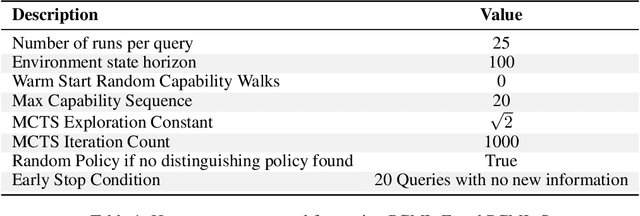



Abstract:Black-box AI (BBAI) systems such as foundational models are increasingly being used for sequential decision making. To ensure that such systems are safe to operate and deploy, it is imperative to develop efficient methods that can provide a sound and interpretable representation of the BBAI's capabilities. This paper shows that PDDL-style representations can be used to efficiently learn and model an input BBAI's planning capabilities. It uses the Monte-Carlo tree search paradigm to systematically create test tasks, acquire data, and prune the hypothesis space of possible symbolic models. Learned models describe a BBAI's capabilities, the conditions under which they can be executed, and the possible outcomes of executing them along with their associated probabilities. Theoretical results show soundness, completeness and convergence of the learned models. Empirical results with multiple BBAI systems illustrate the scope, efficiency, and accuracy of the presented methods.
$\forall$uto$\exists$$\lor\!\land$L: Autonomous Evaluation of LLMs for Truth Maintenance and Reasoning Tasks
Oct 11, 2024



Abstract:This paper presents $\forall$uto$\exists$$\lor\!\land$L, a novel benchmark for scaling Large Language Model (LLM) assessment in formal tasks with clear notions of correctness, such as truth maintenance in translation and logical reasoning. $\forall$uto$\exists$$\lor\!\land$L is the first benchmarking paradigm that offers several key advantages necessary for scaling objective evaluation of LLMs without human labeling: (a) ability to evaluate LLMs of increasing sophistication by auto-generating tasks at different levels of difficulty; (b) auto-generation of ground truth that eliminates dependence on expensive and time-consuming human annotation; (c) the use of automatically generated, randomized datasets that mitigate the ability of successive LLMs to overfit to static datasets used in many contemporary benchmarks. Empirical analysis shows that an LLM's performance on $\forall$uto$\exists$$\lor\!\land$L is highly indicative of its performance on a diverse array of other benchmarks focusing on translation and reasoning tasks, making it a valuable autonomous evaluation paradigm in settings where hand-curated datasets can be hard to obtain and/or update.
Belief-State Query Policies for Planning With Preferences Under Partial Observability
May 24, 2024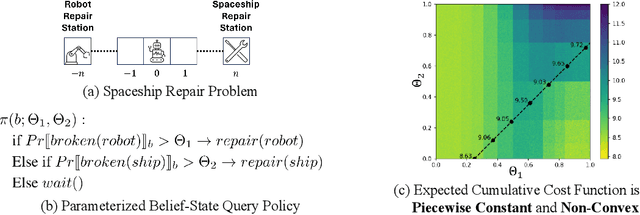

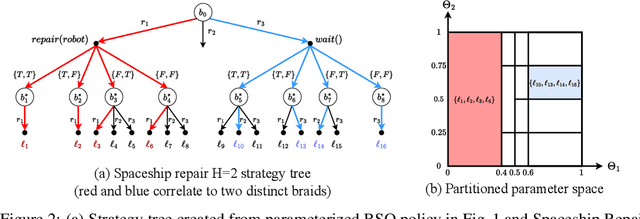
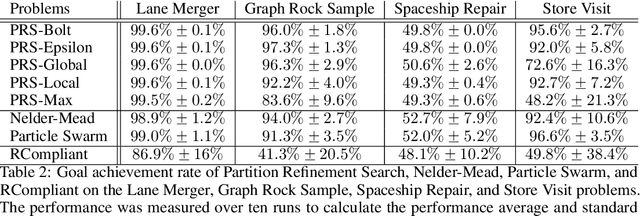
Abstract:Planning in real-world settings often entails addressing partial observability while aligning with users' preferences. We present a novel framework for expressing users' preferences about agent behavior in a partially observable setting using parameterized belief-state query (BSQ) preferences in the setting of goal-oriented partially observable Markov decision processes (gPOMDPs). We present the first formal analysis of such preferences and prove that while the expected value of a BSQ preference is not a convex function w.r.t its parameters, it is piecewise constant and yields an implicit discrete parameter search space that is finite for finite horizons. This theoretical result leads to novel algorithms that optimize gPOMDP agent behavior while guaranteeing user preference compliance. Theoretical analysis proves that our algorithms converge to the optimal preference-compliant behavior in the limit. Empirical results show that BSQ preferences provide a computationally feasible approach for planning with preferences in partially observable settings.
Can LLMs Converse Formally? Automatically Assessing LLMs in Translating and Interpreting Formal Specifications
Mar 27, 2024
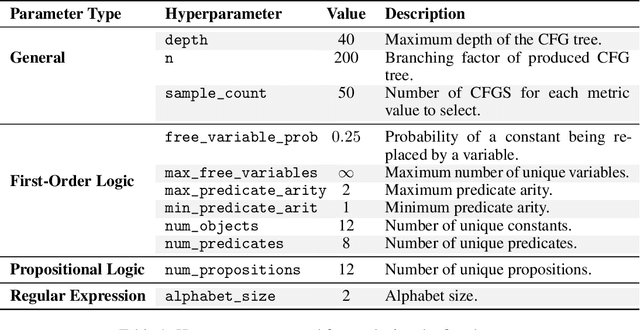
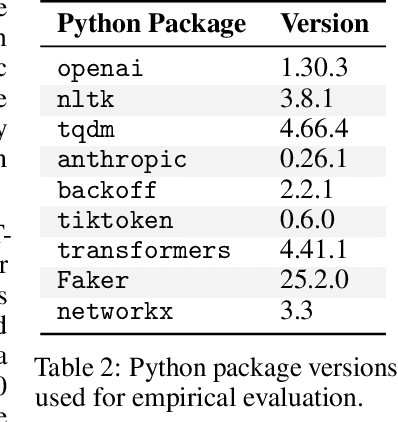
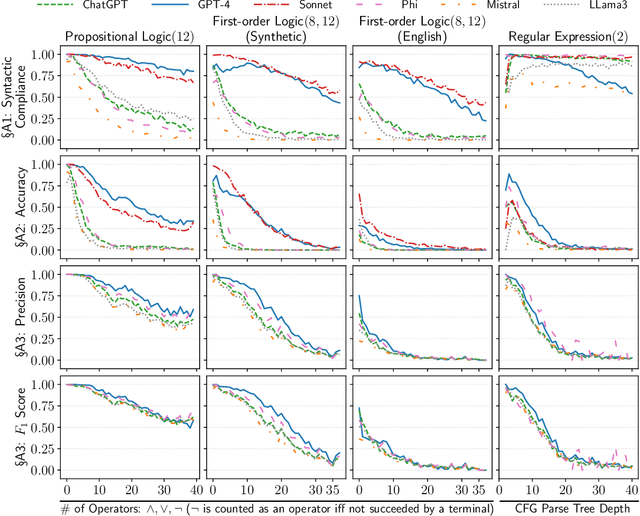
Abstract:Stakeholders often describe system requirements using natural language which are then converted to formal syntax by a domain-expert leading to increased design costs. This paper assesses the capabilities of Large Language Models (LLMs) in converting between natural language descriptions and formal specifications. Existing work has evaluated the capabilities of LLMs in generating formal syntax such as source code but such experiments are typically hand-crafted and use problems that are likely to be in the training set of LLMs, and often require human-annotated datasets. We propose an approach that can use two copies of an LLM in conjunction with an off-the-shelf verifier to automatically evaluate its translation abilities without any additional human input. Our approach generates formal syntax using language grammars to automatically generate a dataset. We conduct an empirical evaluation to measure the accuracy of this translation task and show that SOTA LLMs cannot adequately solve this task, limiting their current utility in the design of complex systems.
 Add to Chrome
Add to Chrome Add to Firefox
Add to Firefox Add to Edge
Add to Edge